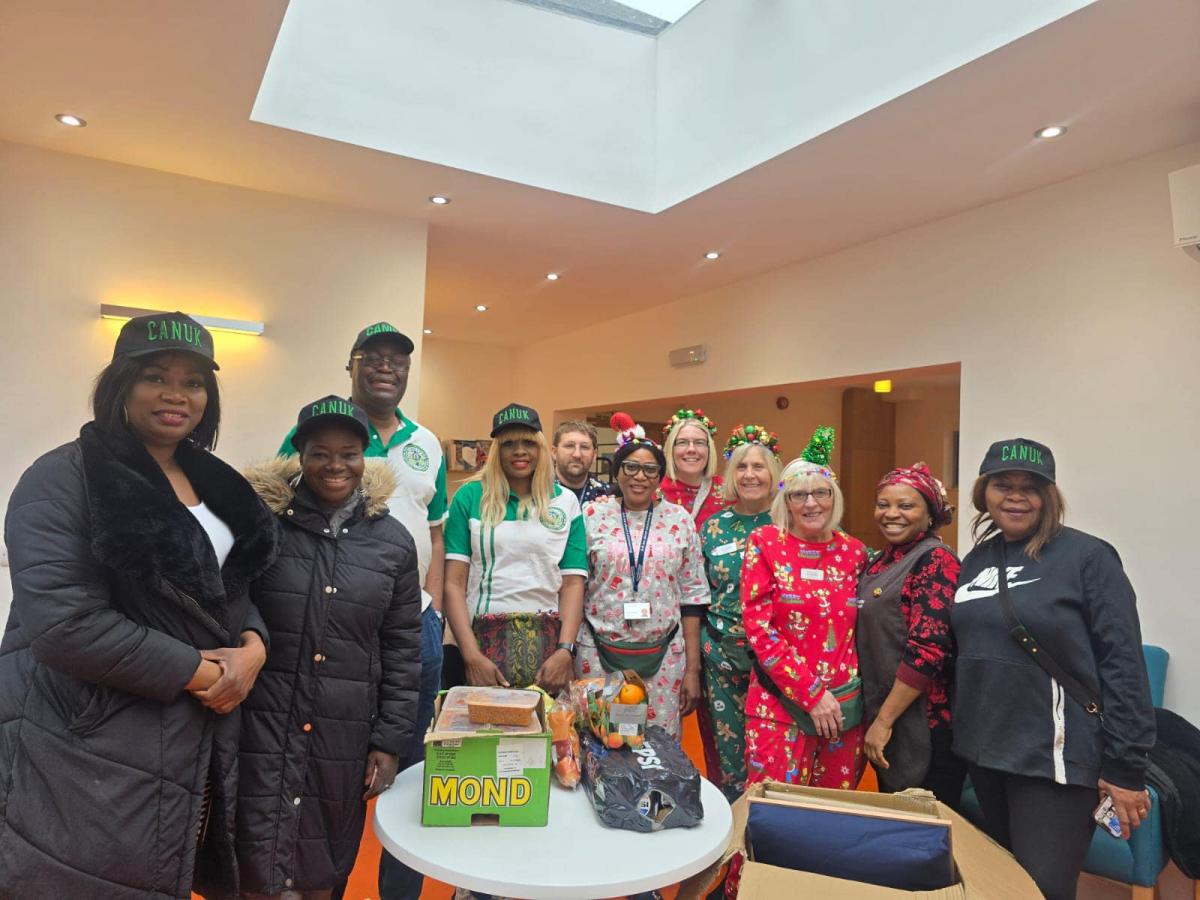There are no products in your shopping cart.
| 0 Items | £0.00 |


CENTRAL Association of Nigerians in the UK (Canuk) officials visited the Greenwich and Bexley Hospice in Abbeywood in southeast London earlier today to celebrate with residents and hand over some items on behalf of the community.
In a first ever such Christmas Day visit, Canuk officials delivered food items and essential supplies to the hospice. Guided by the belief that everyone deserves to feel extra love and care on this special day, this act reflects Canuk’s commitment to community service and fostering unity.
Canuk officials chairman Ayo Akinfe, vice chair Judy Akuta and publicity secretary Rose Graham were joined by Florence Emakpose, president of the Association of Nigerian Charities UK and Ifeoma Onuorah of the Anambra State Union UK for the visit. Their package included jollof rice, soft drinks and fruits, which were received by hospice staff.
Ms Graham said: "This initiative is part of a cooperative agreement between the two bodies which has become necessary following the changing demographics in the two boroughs. Canuk has to work with the hospice to enable it embrace Nigerian culture a bit more as its patient base becomes more diverse.
"Founded in 1995, the Greenwich and Bexley Hospice is having to adapt to the changing demographics in its catchment area, meaning, it has to embrace Nigerian culture a lot more. This has meant that it has had to include food items such as jollof rice on its menu and needs to learn and understand the cultural concerns of its Nigerian residents."
Greenwich and Bexley Hospice caters for about 750 people but for now, only 14 of them are permanent residents and it is these in-house residents that were served today. Simran Kaur, the Greenwich and Bexley Hospice community development and engagement manager, expressed her appreciation at the gesture.
According to Barbara Jika, Canuk's welfare secretary, as this programme expands, more and more Nigerians in need of palliative care will come forward. She added that at the moment, there is a bit of a social stigma attached to owning up to the fact that help is needed and as a result many Nigerians who should be in palliative care are not there.